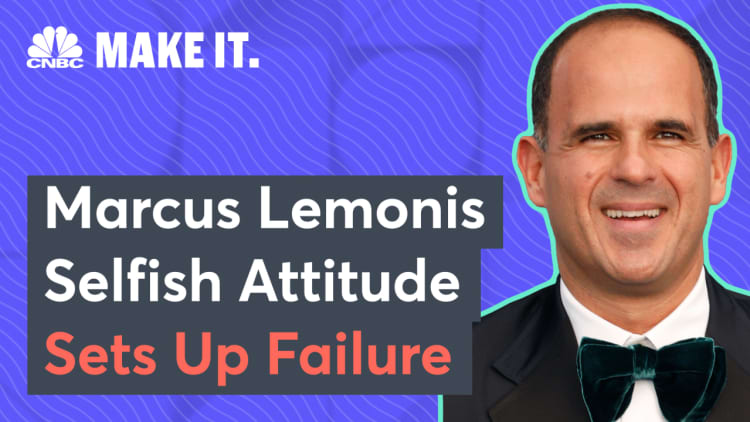Looking out for No. 1 may seem like the surest path to the top, but new research suggests that devoting time to assisting others, even when it doesn't personally benefit you, may be the best path to a fatter paycheck.
A new study published in the Journal of Personality and Social Psychology finds that selfish people earn less than those who are willing to compromise their own work time to help someone else.
Psychologists and researchers at Stockholm University, the Institute for Futures Studies and the University of South Carolina analyzed multiple data sources, querying more than 57,000 people in Europe and the United States about their behaviors and attitudes in order to gauge an individual's "prosociality," or how interested and invested they were in another's well-being and success. They then investigated the impact being generous ("prosocial") or selfish had on a person's income and wage growth.
What they found seems to back up the golden rule: Selfish people never came out on top when it came to earnings.
Rather, people who were "moderately prosocial," or fell somewhere in the middle between extremely selfish and extremely altruistic had the highest incomes. Additionally, those who displayed the highest levels of "prosocial" or altruistic behaviors performed the best over the course of their career, showing the strongest wage growth.
"The super selfish people are putting themselves in organization or industries where salaries are higher. But once a person is in an industry, it is the very generous that are doing the best in terms of earnings growth," Brent Simpson, one of the study's co-authors and a sociology professor at the University of South Carolina, tells CNBC Make It.
People who value their own self-interest and success tend to pursue jobs that will provide them with greater personal rewards such as a large salary or advancement opportunities leading them to careers in fields like finance. People who are "more generous," meanwhile, are more likely to take lower paying roles that focus on improving the lives of others such as becoming school teachers, social workers, police officers or firefighters. This means that "moderately prosocial" people may be seeing the highest wages because they've self-selected for jobs that provide greater financial rewards, not because of job performance or career success.
But when they reviewed a person's wages over several years, not just a single snapshot in time, the researchers were able to see that generosity won out in the long run.
"In organizations, the people that help others are more likely to be promoted to leadership and management positions," says Simpson. "Being a team player is a prized commodity in today's community. People who are only looking out for themselves are typically less liked by colleagues, and that has implications for promotions and salary increases."
Despite our own personal encounters with selfish coworkers and the logic Simpson outlines regarding its impact on promotions, many of us believe selfish behavior helps us in the workplace. In a fifth study, the researchers found that most people expect selfish people to out earn more generous individuals.
It is the very generous that are doing the best in terms of earnings growth.Brent Simpsonprofessor, University of South Carolina
"If you look at popular culture, you see this messaging. 'Nice guys finish last.' 'You have to look out for No. 1.' But that doesn't fully account for the way things actually are. We like to work with people that are helpful and generous and put forth effort for the team. Most of us don't like people who only ever ask, 'What's in it for me?'" says Simpson. "Conventional wisdom doesn't appreciate how dependent we are on others when it comes to getting ahead."
This new research dovetails nicely with previous work in the area, such as Adam Grant's 2013 book, "Give and Take: A Revolutionary Approach to Success." Through interviews with highly successful people, Grant found that a giving nature led to better salary prospects, workplace impact and happiness. His work highlighted that an employee's efforts on behalf of others don't need to be gargantuan — simple things like making an introduction, sharing advice on how best to use a new tool or mentoring a new colleague, without expecting something in return, can be enough to create a benefit.
However you chose to act at your job, the research seems clear that the path to success isn't just about the work you do, but rather how you achieve while also lifting others up and helping them to improve, too.
Like this story? Subscribe to CNBC Make It on YouTube!
Don't miss: Workers say they'd give up $21,000 a year for a meaningful job, new survey finds



